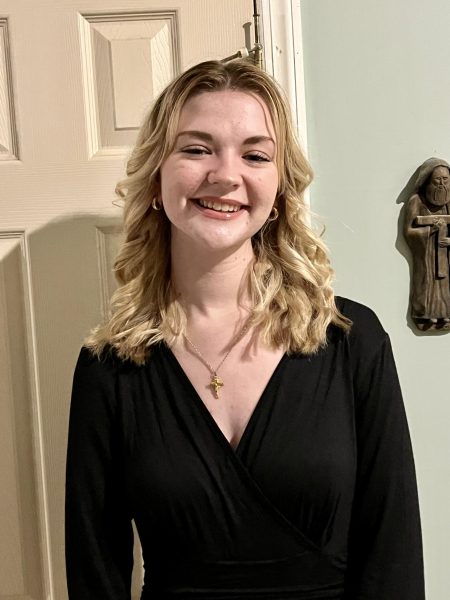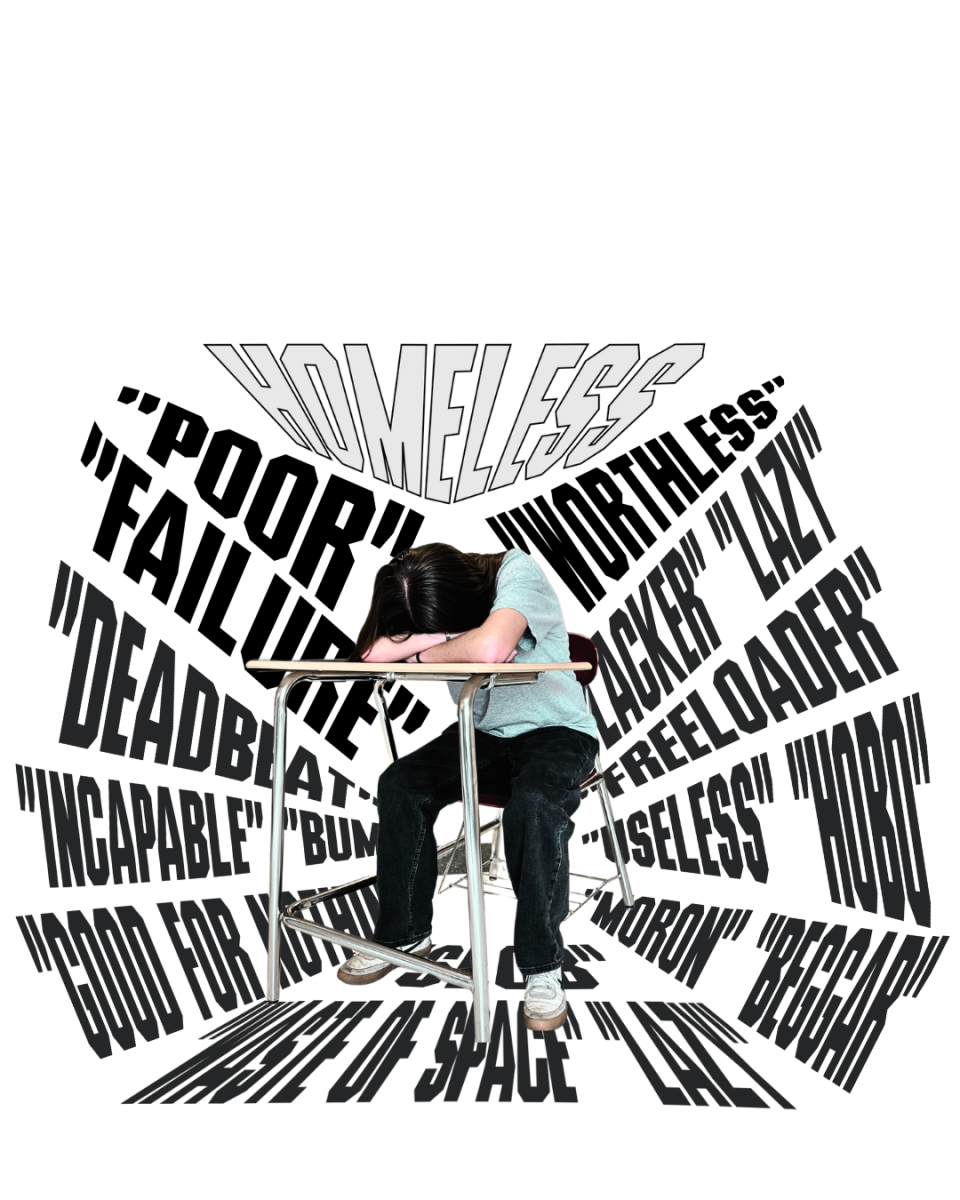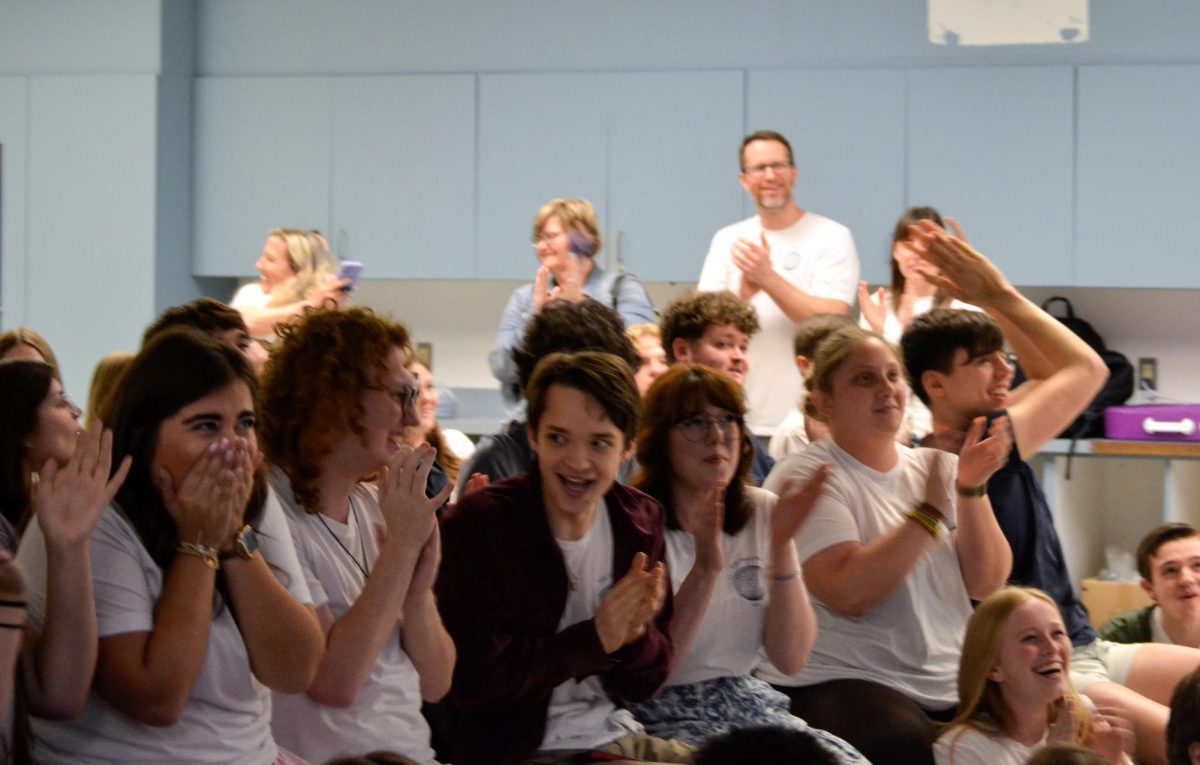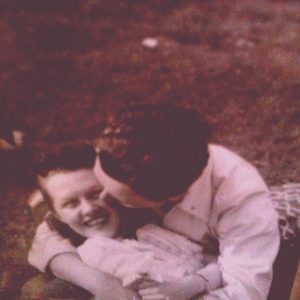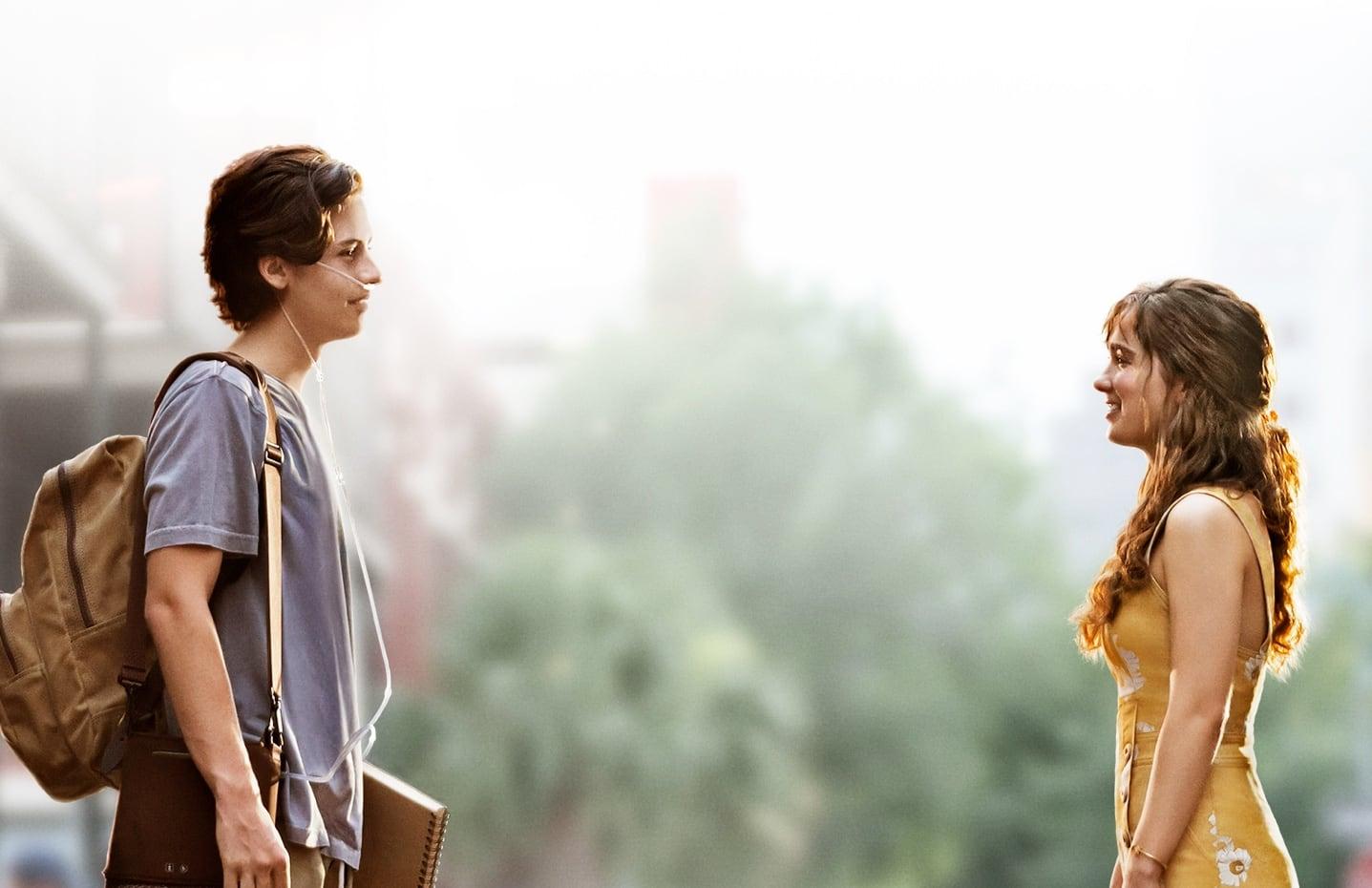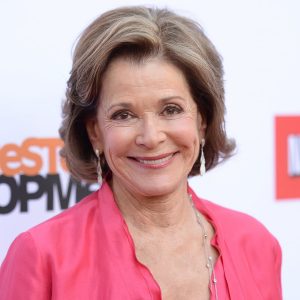Clarevoyance: Say it to my faith
May 20, 2022
The idea that there is an almighty powerful being who created everything and will never die – yet is also three beings at the same time – is a complicated concept for even an adult to understand, and even more difficult for a young child.
I can recall eating dinner one night, when a question came to my mind.
“Where’s God?” I asked, looking up at my father. His mouth was full and he couldn’t respond, so he pointed upward.
“Upstairs?” I couldn’t believe it. I’d never seen God upstairs before, so I assumed he lived in the attic.
“Heaven,” my father said.
Fast forward to first grade in Confraternity of Christian Doctrine (CCD), when my teacher told us God made everything on Earth.
“I know one thing God didn’t make,” a boy said, “He didn’t make buildings.” Of course! People build buildings, obviously. Now this teacher had some explaining to do.
“No, God made those, too,” she said, quieting us.
It took me a while to understand God. When second grade came along, it was time for penance, or my first confession.
Penance is another strange concept, but one of seven holy sacraments in the Catholic Church. Essentially, you go into a small room called a confessional and confess your sins to a priest, who forgives you in the name of Christ. He gives you penance, which are prayers to say for the sins you have committed. We even got a list of ‘ideas’ of sins we may have committed: lying, stealing, talking back, etc.
However, when the day of my first penance finally came, our church was so large that there weren’t enough confessionals for all the little sinners the parish had, so some of us had to have our first confessions out in the open. I recall being nervous already, and now the whole world would hear about the time I silently repeated a swear word after someone else said it aloud. The entire concept was so strange, especially when everyone considered it a celebration. Congratulations on the sinning, kid!
Since my first confession, I’d learned that if I sinned, God would punish me and send me to Hell. So every time any inappropriate thought came across my mind, or I misbehaved in some way, I prayed immediately. God, I apologize for calling that boy a jerk. He told me I couldn’t join the game and that upset me. You know everything about me, so you know I am a little feminist, and boys have cooties. Amen.
One day, my CCD teacher told us that even if I said God’s name, I was praying to him, so if the name was said out loud, I had to finish the prayer. The ‘sins’ I was committing though, sometimes weren’t sins at all.
Every mistake I made felt like a sin that would send me to Hell. If I answered a question on a test wrong, I felt like the world was ending. If I accidentally hurt a friend’s feelings, I would be a terrible person. All of my mistakes were reasons to pray and apologize. There was a constant pressure, from a being I didn’t know, to be perfect.
Another reason for my constant prayers: the mistakes I made when I prayed. I prayed for the souls in purgatory, the poor people, the homeless people, the abused animals, my family. The list went on and on, and if I missed one on the list, then my soul would spend eternity in damnation.
Much later in life, I realized this was not simply a perfectionist attitude, but rather my first serious encounter with my later diagnosed Obsessive-Compulsive Disorder (OCD). The obsession was over my morals and actions, and to relieve the anxiety that came from these obsessions, I would pray.
I learned later there is a term for this phenomenon – scrupulosity. Although my symptoms are better, I still feel like someone is lurking, watching my every move to ensure perfection. After my early struggles with OCD, I later dealt with more religious anxiety – this time in a different way.
Moving forward to 2017, when I was sitting on the couch watching TV. My late fawn greyhound, Murphy, slept on his bed, enjoying the sweet June air dancing through the open windows. My mother sat down beside me and told me that the main priest at my church left for looking at inappropriate material on his computer. Of course, I didn’t know the details of this incident, but as a teenager I found out our priest was viewing child pornography on his own church computer.
Every year of CCD, we learned about the dangers of pornography. Telling strangers “no” if they asked if you wanted candy. The speech about being ‘lured’ by adults was word for word every year.
I can recall the story recited each year about a girl whose photos ended up on pornography websites, yet the church hardly recognized the damage of their own priest’s actions. That girl was equivalent to a prostitute in their minds when she didn’t mean for those photos to be spread, yet the priest of our church, a man who everyone trusted, was a pedophile, and that seemed just fine.
For the first time in my life, I questioned the existence of God. How could the church lie? All of the sudden, these awful questions were floating around. Is God real? What happens when I die? Is there a Heaven or a Hell? I couldn’t understand how someone could do something so horrible and be considered a man of God. It scared me too. I was around this man and he could have harmed me. He could have harmed others, too.
These questions were stressful and depressing. How do I live if there is no God? If there is no God, does that mean life is meaningless?
The answer is not simple.
In fact, regardless of faith, or lack thereof, no one has any idea what will happen after we die. The idea of death still scares me, which I attribute to the idea of going to Hell and suffering for all eternity. My faith is still relatively unknown to me. When I hear Catholics are beginning to join certain Protestant groups on radical right-wing ideas, like spreading anti-gay messages and supporting corrupt political candidates, I struggle with identifying as a part of it.
I don’t want to stand with liars and hypocrites, who claim abortions are cruel but approve of the death penalty. I don’t want to have 900 children and no job and wear a long denim skirt everyday of my life – especially if it means I’ll be a part of a TLC show. But most of all, I don’t want to think about death every day of my life and fear the consequences for minor immoral actions.
As of right now, I have no idea whether I fully believe in the Catholic faith – and that’s OK.
Police arrested an important member of my church and sent him to prison for viewing images and videos of children being sexually abused. My OCD became a nightmare at an early age. I was, and I still am, confused by the idea of a higher power.
In spite of everything, I don’t think Catholicism, nor any branch of Christianity, or any religion, is something negative.
For example, a relative of mine is a nun, who has dedicated her life to helping the poor and other marginalized groups. Although she is ‘retired’ now, she still protests against unfair immigration policies. A few years ago, she visited the border to take care of those treated unjustly by American border control. She spent years in Kensington, Philadelphia, helping people with their heroin addictions. Her kindness and undying love inspire me like no other person I’ve met, and to me, that is the true definition of a Catholic.
My uncle is also a deacon, and has spent years learning Spanish to help Spanish-speaking parishioners have an easier time understanding mass. What inspires me is that my uncle isn’t what you would expect when it comes to a Catholic deacon. His favorite movie is So I Married an Axe Murderer, and he married prior to meeting my aunt. However, he is most certainly the definition of a Catholic in how he raised four children, two of whom are not his own. He continues to help everyone in his church, but particularly helped the former priest with ongoing medical issues.
Both of these people in my life, along with countless others, are true Catholics. That is why my heart still stands in the church, regardless of my religious struggles.



